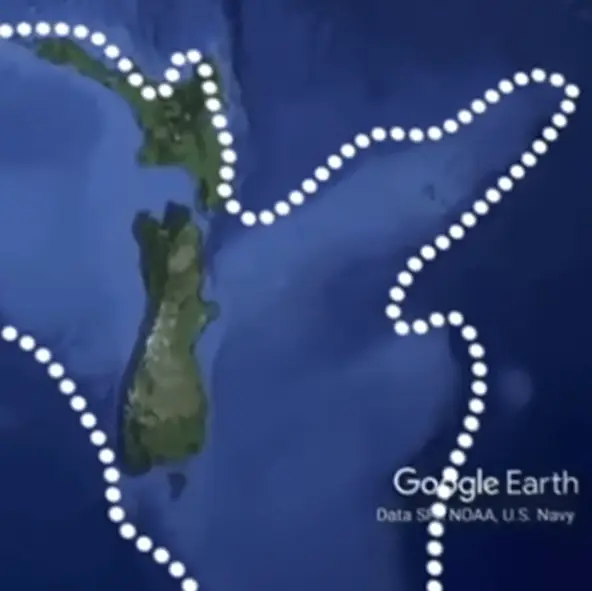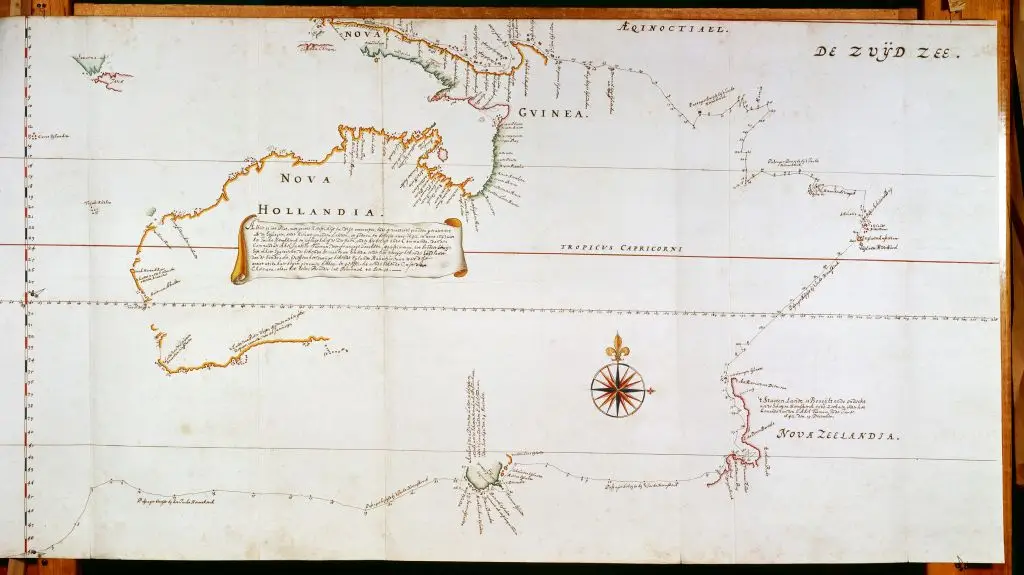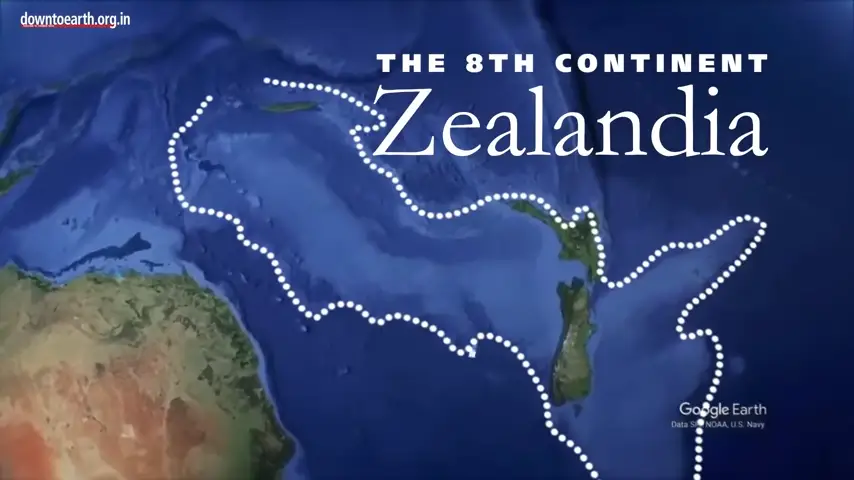
An entire continent that was considered to be 'missing' for nearly 400 years has finally been found by scientists, stretching 1,890,000 square meters underwater.
It's easy to lose track of things as you go about life like your keys or your phone, but finding yourself in a situation where an entire continent goes missing is rather unprecedented.
First recorded by Dutch sailor Abel Tasman over 375 years ago in 1642, Zealandia - or Te Riu-a-Māui in the Māori language - was supposedly a gigantic continent stretching over 1.89 million square meters.

Advert
Unfortunately, despite receiving helpful information from native Māori on the South Island of New Zealand, Tasman was unable to locate the 'hidden' continent, and it is only until recently that scientists have actually been able to discover the landmass, as reported by Times Now News.
It's understood that Zealandia originally began as a part of the Gondwana supercontinent, which also formed what is now western Antarctica and eastern Australia.
The supercontinent is estimated to have existed around 500,000,000 years ago, and Zealandia is likely to have split nearly 400 million years after in an event that scientists still don't fully understand.
When pulling away, however, it appears as if the land gradually sank into the sea with eventually 94% of the continent moving underwater - hence why it's been so difficult for people to find.
It was in 2017 though that researchers at GNS Science - New Zealand's Crown Research Institute for geology - finally located the 'hidden' continent that was around 2 kilometers deep underneath the water surface.

While you might be wondering how it's taken nearly 400 years to find something that was simply just there all along, one of the leading scientists at GNS Andy Tulloch explains that "this is an example of how something very obvious can take a while to uncover."
This notion is supported by Robert Sutherland, professor of geophysics and tectonics at the Victoria University of Wellington, as he outlines, as per the BBC:
"It's quite hard to make discoveries when everything is 2km underwater, and the layers that you need to sample are 500m beneath the seabed as well. It's really challenging to go out and explore a continent like that. So, it just takes a lot of time, money, and effort to go out and ships and survey regions."
While this new 'eighth' continent isn't quite like the seven that are already familiar with, it's certainly a landmark discovery that shows that there's likely far more that we are still yet to learn about the Earth - with much of it potentially underneath our noses this whole time.
